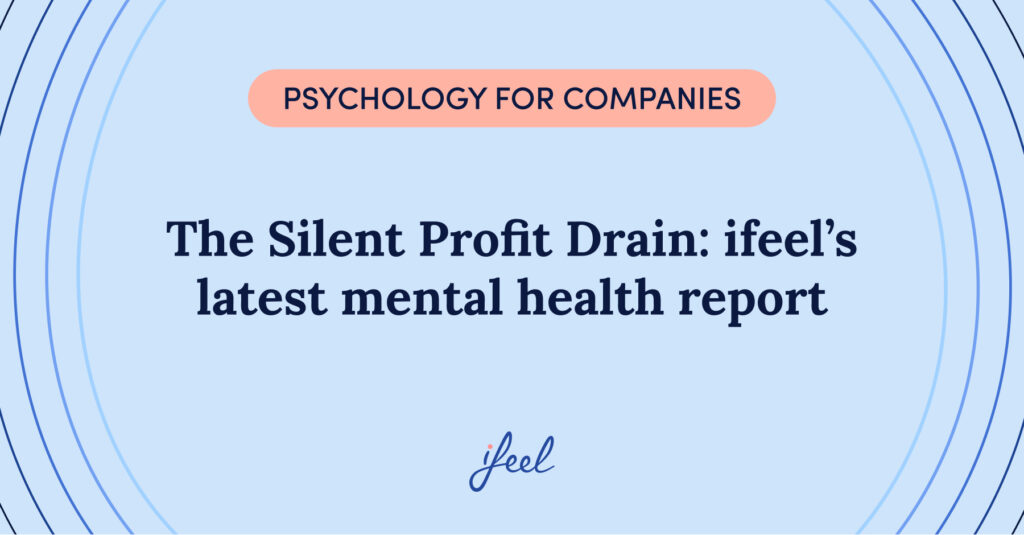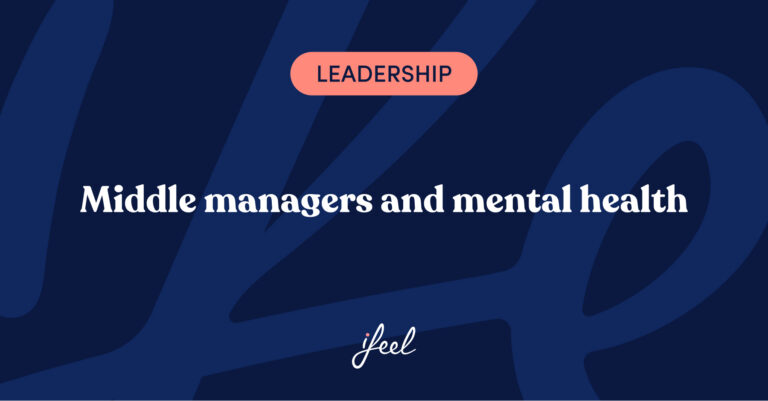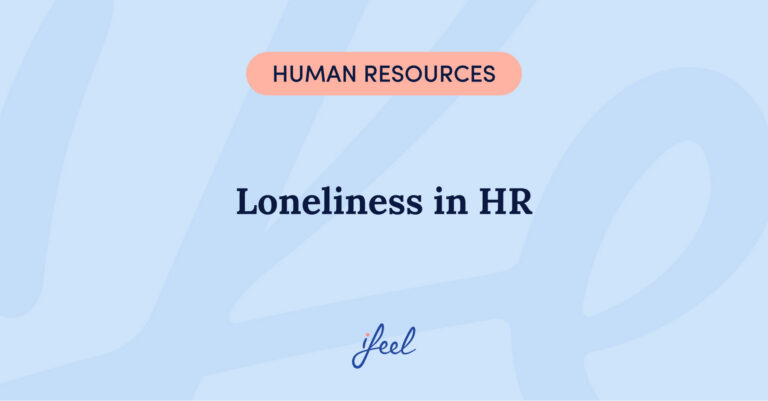Mental health at work has shifted from an individual concern to a global business imperative. Research shows that nearly 1 billion people worldwide live with some form of mental health problem, and the economic impact is overwhelming: it is estimated to cost the global economy $1 trillion a year. In Europe alone, mental health issues at work generate more than €50 billion a year in combined costs: healthcare, social benefits, and lost productivity.
However, these business costs are not explained solely by absenteeism. There is also a silent phenomenon that erodes productivity: presenteeism, when a person comes to work but performs below their full capacity. This problem often costs two to three times more than absences and yet remains unnoticed by traditional measurement systems.
Despite this worrying scenario, there is still room for optimism, as evidence shows that proactively investing in mental health within organisations is the most cost-effective option. Specifically, the data indicates that for every €1 invested, up to €4 can be obtained in return, thanks to reduced absenteeism, sustained performance improvement and greater talent retention.
But where to start? At ifeel, we have released our latest mental health report: ‘The Silent Profit Drain: Data-Driven Research on Mental Health and Workplace Costs’, which offers up-to-date data, specific cases, and a practical roadmap for implementing effective solutions. Download it now for free and discover how to transform this challenge into a measurable competitive advantage for your organisation.
Why is mental health care critical in European organisations?
Today, younger generations are more aware of the risks of not taking care of their mental health, and therefore demand comprehensive, accessible and stigma-free support from their employers. In this sense, ignoring this reality results in increased turnover and lower levels of work engagement, which directly impact companies’ financial results.
At the same time, a critical gap persists in Europe: nearly half of people with serious mental health disorders remain untreated, despite continuing to attend their jobs. This gap in care becomes a hidden cost through lost productivity and days of absence from work.
Of course, some sectors are more prone to these absences, such as high-pressure, high-expectation, and high-risk work environments, such as finance, healthcare, and technology, where stress and long hours exacerbate the deterioration of psychological well-being and amplify the impact of presenteeism and sick leave.
Therefore, integrating mental health at work into the employee value proposition is key to closing the access gap and prioritising the most exposed groups. This is not just a well-being measure: it is a business strategy to protect productivity, reduce turnover and maintain the competitive advantage of companies in Europe.
How to choose the perfect partner
Now that we understand the magnitude of the problem, the next step is to choose a partner capable of solving it and adapting to the specific needs of each company. This decision becomes particularly complex in global organisations with distributed workforces, where a solution is required that covers languages, cultural contexts and local particularities without compromising consistency or quality.
These demands raise the bar: not just any provider can turn a cost centre into a real lever for growth. In fact, many traditional employee assistance programmes (EAPs) barely exceed 5% usage, operate reactively and are often late to address problems, making them insufficient for the modern needs of companies.
This is where ifeel makes a difference, thanks to its unique features:
| ifeel differentiator | What it means | Impact on the organisation |
| 6–10x higher participation | Digital, preventive and scalable solution that facilitates access and reduces stigma | More actual use of the benefit, greater reach and effect on productivity and climate |
| AI-driven clinical triage | Intelligent prioritisation and referral based on need and risk | Timely interventions that prevent crises and reduce costs |
| Evidence-based risk stratification | Use of WSAS-1, SOFAS, GAD-7 and PHQ-9 to segment and monitor | Clinical and HR decisions based on reliable data; focus where it has the most impact |
| Impact reports for management and HR | Dashboards and business metrics linked to mental health at work | ROI visibility, absenteeism/presenteeism tracking and continuous improvement |
| Focus on measurable results | Each intervention is designed to drive functional and business indicators | Recovered productivity, lower turnover and savings in direct and indirect costs |
In addition, employees at higher risk remain committed to therapy for longer, which reduces turnover and associated costs and preserves critical business knowledge. In other words, ifeel not only addresses discomfort: it anticipates it, measures it and converts it into recovered productivity and talent stability.
To achieve this, it combines three key elements:
- clear ROI evidence and metrics, through dashboards with a direct impact on the business;
- real scalability for distributed teams;
- and clinical rigour, thanks to its predictive triage and validated methodologies.
All of this is underpinned by enterprise-grade privacy and a robust compliance framework (GDPR, SOC 2 Type II and ISO 27001) that guarantees the security and confidentiality of your teams on a global scale.
Mental health at work, one of the biggest challenges of our times
Mental health at work is not an ‘extra’, but a tangible driver of productivity, retention, and competitive advantage. Choosing a strategic ally, such as ifeel, allows you to move from reaction to measurable impact, with clinical rigour, scalability and security.
To delve deeper into figures, methodology, and real cases, including the cost of ‘silence’ in European enterprises, download our latest mental health report for free: ‘The Silent Profit Drain:Data-Driven Research on Mental Health and Workplace Costs’. You will find a practical roadmap for measuring beyond sick leave, implementing early interventions and presenting metrics that matter to the executive committee.
Start transforming well-being into a measurable competitive advantage today.











